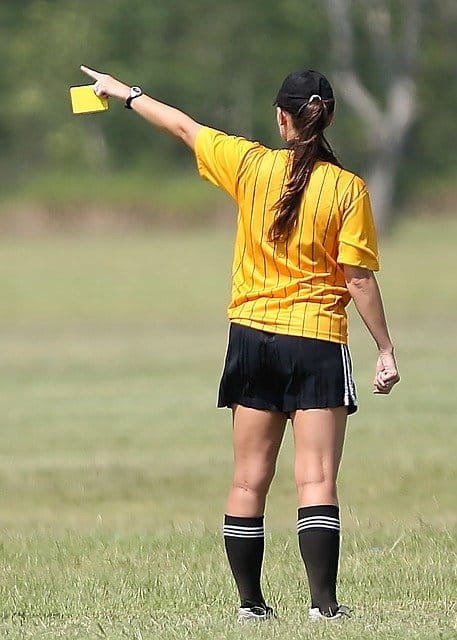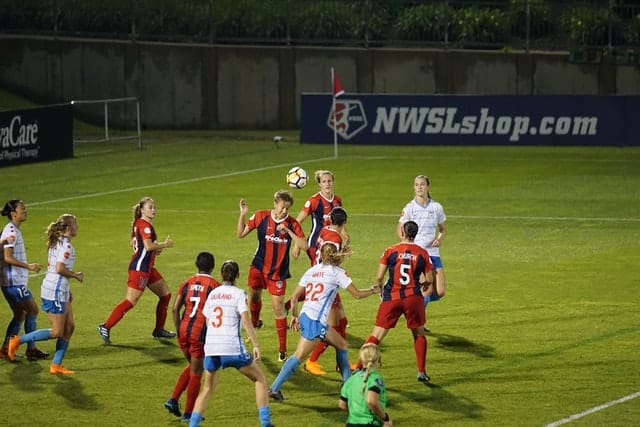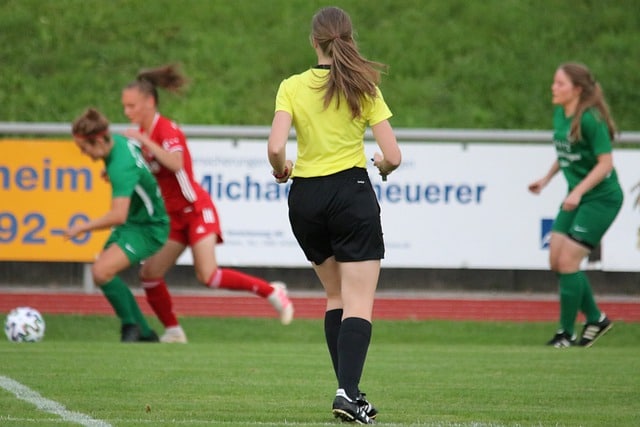In soccer, the main referee has full authority and control over the match. The referee of a soccer match can do basically whatever they believe is right to ensure that the soccer rules are obeyed on the field.
Soccer referees can pause the game at any time, punish players with yellow or red cards, cancel goals or approve them and they can do so much more to keep the match under control.
However, at the end of the day, soccer referees are humans and they sometimes make mistakes. The question is, are they allowed to reverse these mistakes? Can soccer referees change their decisions during a soccer match?
Soccer referees are allowed to change their decision as long as the game has not been restarted yet after their decision was made and as long as they haven’t ended the current half of the match.
If the game restarts, then the referee can’t change their decision anymore even if they realize that they made a wrong decision.
Referees are also not allowed to change their decision after they end the half. In other words, if a decision was made at the end of the first half for example, and the referee ends the first half immediately after they made their decision, then that decision can’t be changed anymore.

So there you have it. Once the game restarts or the current match half ends, there is no way the referee will change a decision they made no matter how much pressure they face from the audience, the players, and from other match officials.
How often do soccer referees change their decisions?
Reversing a referee’s decision is very difficult. Usually, when the referee makes a decision, they rarely change it no matter how much pressure they face from the players and from the audience around them.
The referees know that if they change their decision once because of the pressure from the players and the audience, then the players and the audience will get used to it and will use it as a technique to reverse the referee’s decisions whenever they think they can.
Before 2018, some soccer referee’s decisions during major soccer matches were extremely controversial among soccer fans both during the game and after the game, and the pressure on the referees to reverse their decisions were a nightmare for the referees.
However, after VAR was officially introduced to soccer in 2018, the controversy around the major decisions that referees took during soccer matches weren’t as strong as they used to be.
If you don’t know what the Video Assistant Referee(VAR) is, it’s basically a group of assistant referees sitting in some room watching instant replays of the game to help the main referee of the match make better decisions during the game.
VAR was tested in 2016 and was officially introduced to soccer in 2018. Introducing the VAR technology reduced the number of critical bad decisions that referees made during the match.
So in other words, whenever the main referee thinks that their decision on the field might be wrong, they ask for assistance from the VAR before they make their decision. So in other words, less and less referee decisions are being changed in soccer these days because of the new technologies that are being introduced.
How long does a referee have to reverse their decision?
As long as the game has not been restarted and as long as the soccer half currently being played has not ended, then the referee can change their decision.
So, there’s no fixed time interval during which the referee is allowed to change their decision. Even if it takes minutes before the game restarts, the referee can still change their decision. They usually won’t, but they can.
Do soccer referees get punished for their bad decisions?
Referees are held accountable for their performances during a soccer match. Usually in the top soccer leagues, referees’ performances are assessed after every game. At the end of the season, the referees that do not perform well are either demoted to lower leagues or sent home.

Some referees in soccer were sent home immediately after a game. But this rarely happens in soccer.
Graham Poll was one of the referees that were fired after some terrible decisions made during a world cup match.
Graham Poll gave 3 yellow cards to the same player during a world cup match. Now if you don’t know how cards work in soccer, then here’s a quick summary of it:
If a soccer player gets 2 yellow cards during the same soccer match, they are kicked out of the match. Graham Poll forgot that they had given the player a first yellow card, so when he gave him the second yellow card, he thought that it was the first one.
Later during the match, he gave the player a 3rd yellow card and sent him outside the field.
Graham Poll was a great referee, but still, he was sent home due to the bad decision that he made during that match.
So, referees are held accountable when they make terrible mistakes on the field.
Summary
Soccer referees are allowed to change their decision as long as the game has not been restarted and the current match half has not ended. Even though referees are allowed to change their decisions, it’s rare that you see it happen.
Referees are held accountable for their performances and some of them were immediately fired after some terrible decisions they have made during a soccer match.
Here are other referees related articles that you can check.

